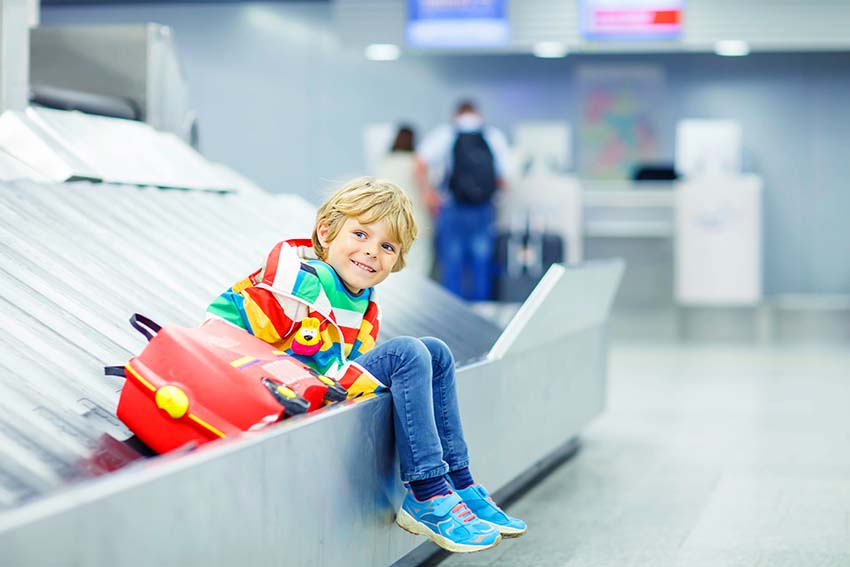Traveling with Children After a Divorce
Taking trips with the family after a divorce should be no different from previous vacations. They should be memorable experiences and usually, it can be beneficial when parents work out a solid plan for how vacation time will be spent. It is helpful to create stability and certainty for children, especially when it comes to making vacation and travel plans.
Parenting during holidays and vacations is usually seen as part of a comprehensive parenting plan. This plan is the basis for how the co-parenting will work since it addresses decision-making on behalf of the children, as well as logistics. The plan should also address any limitations on travel, which generally depends on each parent’s concerns. Here are some examples of questions that arise:
- Who is allowed to travel with the child?
- Will a significant other be traveling as well?
- Which parent provides the travel gear?
- Will travel include missed school days?
- How will the non-traveling parent stay in communication?
Developing a plan early on gives each parent the opportunity to talk about any concerns and preferences when it comes to how they believe co-parenting can work. Details can vary between agreements and even when parents have good communication, it is still a good idea to both look at the school calendar and creates a schedule to make sure that expectations are set. This includes:
- Choosing vacation dates
- Planning and logistics related to the vacation
- Travel arrangements and plans communicated through email or text are memorialized.
Once a parent schedules a vacation with their children, co-parenting considerations continue. Exchange basic itinerary, including departure dates, transportation plans (including flight numbers or other tracking numbers), hotels or other lodging information, scheduled activities, and contact information (cell phones, hotel contact numbers, etc.).
You will find it very helpful to discuss how and when communication will take place between the children and the non-traveling parent. Communicating will give both parents the opportunity to address any safety concerns (or other concerns) about the trip.
Traveling internationally is a lot more complicated in comparison to traveling domestically. It is even more complicated because of time differences, technology concerns, and the general idea of the children being in a different country. In addition to providing detailed itineraries, there are other ways you can reduce the stress of international travel for the non-traveling parent as outlined below:
- Passports: When it comes to passports, it generally involves which parent will hold the children’s passports and if they don’t have passports, which parent is responsible for getting them. You should also agree on a general schedule for when documents should be exchanged between the parents, specifically if the parent going on an international trip isn’t in charge of the passports.
- Safety concerns: Parents may want to weigh in on the possible destinations for their children, regardless of who the traveling parent is. Though it may seem extreme, it is smart to be up to date with the current political climate and United States Department alerts and warnings to decide if a vacation in a particular country is safe. It’s important to know if you’re going to have trouble getting in and out of that country.

Travel-related activities
Different destinations can give you very different experiences. If you are going to a warm, tropical area, like the popular destination of Hawaii, you may have the opportunity to come close to wild animals or to experience adventures like zip-lining or snorkeling. Depending on how old your children are, the non-traveling parent may ask to go over what activities you plan on doing with the kids.
Children traveling alone
There are some cases, especially for parents who travel for work, where the traveling parent may need the kids to meet them at the vacation destination. There should be communication with the non-traveling parent to figure out the traveling arrangements or place certain limitations on how, where, and when the children are allowed to meet the traveling parent.
Cost of travel
Of course, when it comes to whether the expenses of travel for the children, there should be a definite line of communication. While a parenting agreement may not include all the details, there are situations that should be included ahead of time. Life continues after divorce and that includes traveling with children.
It is always best to be flexible when it comes to planning trips. Even if you and your former spouse have an agreed upon travel arrangements, there are situations that can pop up out of nowhere. There may be situations where something last minute pops up and it may require a change in plan. These are the moments where it is best to be flexible, so your children don’t end up having their trip ruined. If you have any questions or if you are looking for representation for your divorce, give Shaffer Family Law in Chandler a call. We can help make sure that the holiday plan that is arranged is fair for all those involved. Call us at (480) 470-3030 today!

